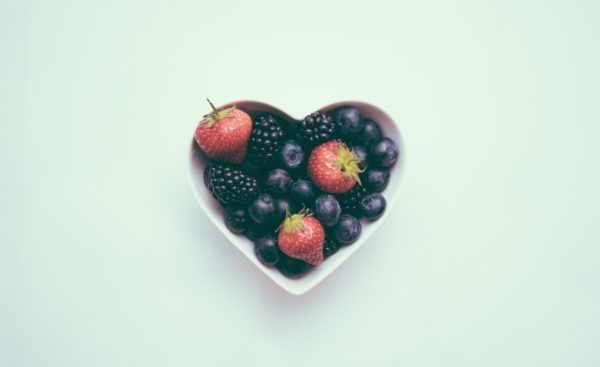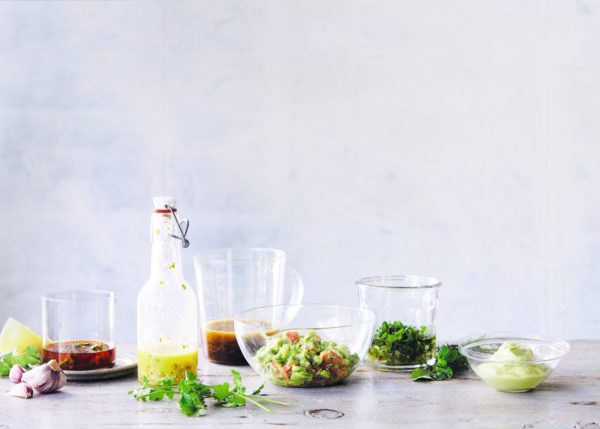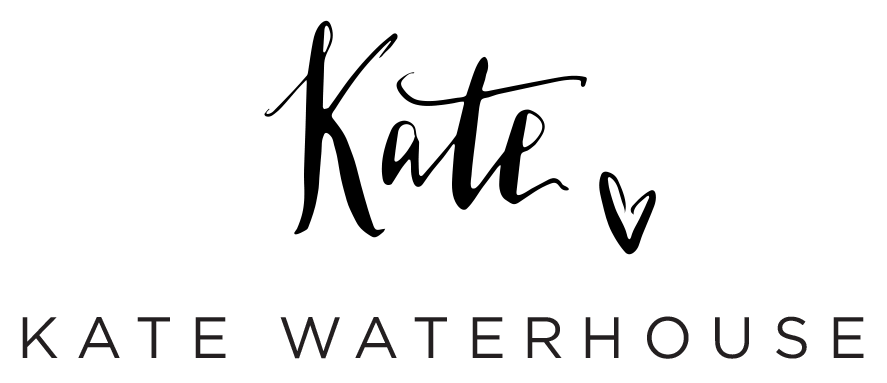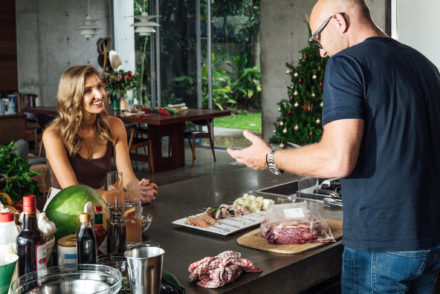
While there’s a lot we can do in terms of hygiene methods such as washing our hands often and not touching our face that can help protect us against coronavirus, there’s also plenty we can do when it comes to our diets.
I’ve been wanting to do everything I can at home to help boost my family’s immune system and one of the best ways to do that is through what we eat. We always try to eat well regardless, but I wanted to find out what we can add to our diets to help strengthen our immunity. So I turned to nutritionist and author Michele Chevalley Hedge of Sydney’s A Healthy View to find out the simple things we can add, and the tweaks we can make, to ensure our diet is as healthy as possible.
Why is maintaining a healthy diet so important for our immune system?
“Our quiet, humble immune system has never received so much attention as now. It has always been important to keep our immune system robust but it’s imperative now. And it is not just about building your immunity to prevent coronavirus but to prevent all illnesses. When our immune system gets comprised, it is like tearing down a wall that otherwise would keep germs at bay. What is being overlooked by the community is that anyone in poor health is far more susceptible to this invasive virus. It is a scary time for all and there are many unknowns and things we cannot control, but what we can control is how we nourish ourselves and that has a direct impact on our immune system.”
What are the best foods for boosting immunity?
“The good news is we all must eat so why not eat for immunity, mental resilience, energy and overall wellbeing? We need a diverse group of phytochemical and vitamins to create a strong barrier against pathogens and that is very ‘do-able’ with a diet of whole, real foods. A diet where the a majority of what you are consuming is not coming from a package that is laden with chemicals, trans fats and hidden sugars.
My favourite top 10 immune optimising foods contain vitamins and minerals include folate, zinc, iron, beta-carotene, Vitamins B6, B12, C, D, and E. And these foods are:
Dark Chocolate which contains an antioxidant called theobromine, which may help boost the immune system by protecting the body from free radicals.
Sweet potato is rich in beta carotene which is a great source of Vitamin A, essential for immunity and an excellent source of sustained energy.
Kiwi fruit is high in vitamin C, folate, potassium, and antioxidants, such as alpha-Tocopherol and lutein. It has positive effects on the immune response making it potentially helpful in preventing a wide range of ailments.
Garlic has been used in medicine for centuries. Chopping or crushing stimulates the enzymatic process that converts the phytonutrient alliin into allicin, a compound to which many of garlic’s immune boosting benefits is associated with. In order to allow for maximal allicin production, wait at least five minutes before eating or cooking
Broccoli and cruciferous veggies are the biggest bang for your nutritional buck as they’re not just immune boosters but liver cleansers as well. Chinese cabbage, brussel sprouts, bok choy and kale all contain beta carotene, letein, zeaxanthin, folate, and vitamin C E and K. They are rich in sulfur-containing substances called glucosinolates which are known for immune optimisation.
Probiotic food is important for good gut bacteria. Our immune system lies i just below the surface of our gut line so it’s important to keep it healthy by eating foods such as kimchi, sauerkraut, tempeh, miso, yoghurt, kefir and natto.
Prebiotic food are the foods that feed the probiotic bacteria and are not as well knows as probiotics but equally important in our immunity. In addition to garlic and onion, there is Jerusalem artichoke, leeks and leafy greens.
Nutritional Yeast is unknown to most but this yeast often serves as an added value to soups, casseroles and even popcorn. It contains lots of vitamin B and beta glucons which have powerful infection preventing and immune supporting qualities.
Green Tea contains catechins, and quercerin and the amino acid L-theanine, all of which support our immune system.
Citrus and berries are abundant in vitamin C which is a natural anti-viral. They are rich in polyphenols and phytochemical that benefit digestive and immune systems.

How can people tweak the meals they cook to help boost immunity?
Tweak away people! Add spices, herbs, sauces, sides and pestos to your meals or a simple bowl of vegetables. Herbs and spices are added antioxidants—the icing on the healthy cake so to speak.”
There are many supplements on the market that claim to boost immunity. What should people be looking for if they’re buying a supplement in the hopes of boosting their immune system? Is it even necessary to take a supplement?
“I always recommend getting your food right before I recommend supplements. However, right now, why not have that extra protection. Below are evidence-based supplements that improve or protect your immune function. I’d like to stress though that with all supplements, you should check with your qualified nutritionist first as they will tailor dosage levels to suit you.
A multivitamin and mineral: one per day
Vitamin C: 1000 mg – 1- 2 separate doses per day. Our body likes small doses of Vitamin C throughout the day.
Vitamin D3: 1000-4000 IU a day
Zinc: 20 mg a day
Melatonin: 1-3 mg at night, sustained release, one hour before bed. Remember blue light is a melatonin vampire.
Probiotics: dairy free is preferred.




No Comments